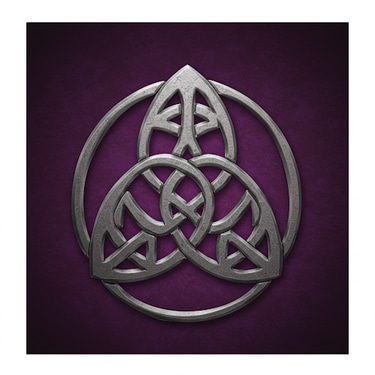Making Peace With the Unloved Self: A Christian Mystic’s Invitation to the Shadow Table
Deborah Colleen Rose
5/15/20253 min read
We all have parts of ourselves we’d rather not see—
The jealous part. The impatient one. The one who still wants to be chosen, praised, or told she’s enough without needing to prove it.
We tuck these parts away like unruly guests before company arrives, hoping God doesn't notice the bulge under the rug.
But here’s the truth I’ve come to live by:
God doesn’t want your performance. He wants your presence.
Even the parts of you you’d never put on a prayer card.
The Lie of Perfection
We’ve been trained to believe that being “Christlike” means being endlessly kind, selfless, soft-spoken, and forgiving. But that isn’t Christlike—it’s church-approved niceness.
Somewhere along the way, "die to self" got twisted into "delete yourself." And in our quest for holiness, we’ve amputated parts of our humanity that God never asked us to cut off.
The Greek word for “perfect” in “Be perfect as your Father is perfect” is teleios—it doesn’t mean spotless. It means whole. Complete. Mature. Developed.
But the modern church often sells a counterfeit holiness that rewards image over integration. We’re praised when we suppress our "flesh"—but rarely taught how to discern it from our undeveloped gifts.
Because here’s the thing:
You don’t heal by cutting off the parts of you that hurt.
You heal by sitting with them long enough to understand why they’re crying.
Meet the Shadow
In psychology, the shadow is the part of the psyche we repress because it doesn’t match our self-image. In the spiritual world, it's often mistaken for sin.
But sin and shadow aren’t the same thing. Shadow is unloved potential, turned sideways.
Rage? Could be the holy protector inside you who’s sick of abuse.
Ambition? Maybe it’s just your calling knocking louder than you expected.
Sensuality? Could be the path to embodied worship you’ve been too afraid to explore.
The shadow doesn’t need to be cast out.
It needs to be invited in.
Because when we don’t claim our shadow, it claims us—
in our relationships, our sabotage, our passive-aggression, our judgment of others.
Try this:
When you feel a part of you rising up that doesn’t fit your “spiritual persona,” pause.
Ask it:
What are you protecting me from?
What pain are you carrying beneath your surface?
What truth do you hold that I’ve refused to see?
You are not a battlefield.
You are a round table.
Every part of you has a seat, even the one that used to scream in the dark.
The Jesus Model: Wholeness Over Image
Let’s be honest—Jesus wouldn’t last five minutes in some modern churches.
He didn’t smile for approval. He didn’t perform holiness.
He flipped tables. He called religious leaders vipers.
He walked away from people who didn’t get it.
And He also wept. He got overwhelmed. He bled.
He didn’t avoid shadow—He embodied it and transfigured it.
If we say we are made in His image, then why are we afraid to reflect all of it?
Christ in us doesn’t mean we only show the sanitized, shiny parts.
It means every corner of our soul is capable of being transformed—not by denial, but by divine attention.
The Sacred Practice of Integration
Here’s where it gets practical. Shadow work isn’t just theory. It’s daily hospitality to your inner misfits.
Try these:
Mirror Work: Look into your own eyes and say to your shadow, “I see you. I’m not here to change you. I just want to know you.”
Journaling Prompt: If I were allowed to want without judgment, what would I admit to myself today?
Prayer of Welcome:
“Holy Spirit, I invite You not only into my light, but into the caverns I’ve kept hidden.
Teach me to walk with my whole self—especially the parts I was told to leave at the door.”
Embodied Action: Dance when you're angry. Write when you’re ashamed. Speak when you’re scared. These aren't rebellions—they're reunions.
Because here’s the deeper truth:
God can’t heal what we pretend doesn’t exist.
The shadow isn’t evil—it’s exiled.
You are allowed to be complex. Holy things often are.
Join us in spiritual growth and connection. More to come.
Community
© 2025. All rights reserved.
